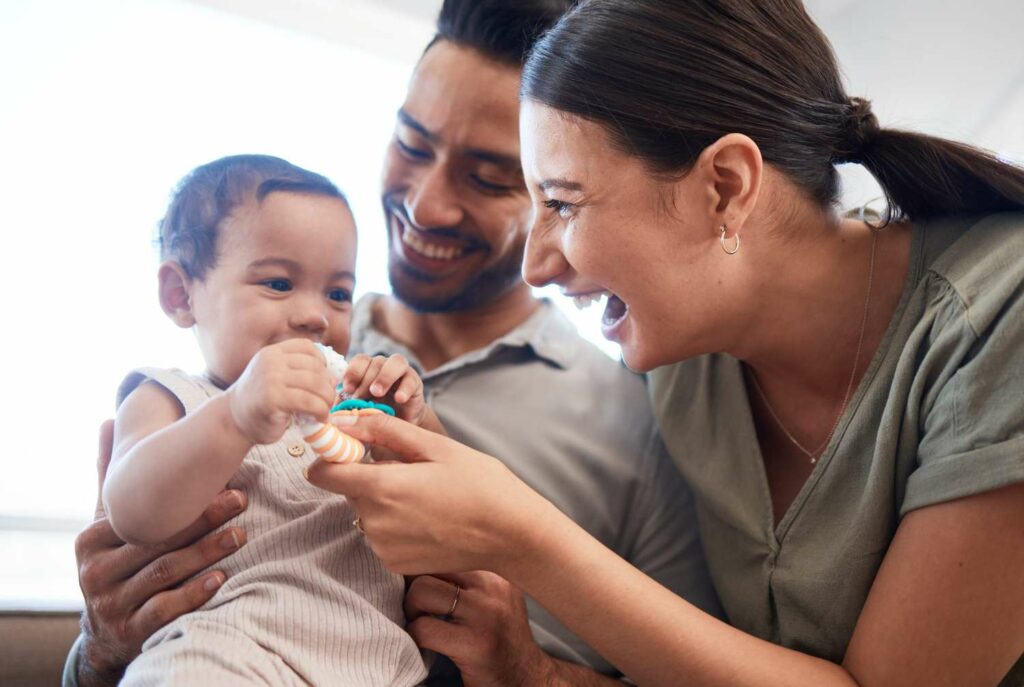The Miracle of Conception
Conception marks the union of an egg and sperm, creating a unique set of genetic materials that will determine the characteristics of the future baby. This pivotal moment sets the stage for a series of astonishing changes that will unfold over the coming months. But what exactly happens during conception?
Trimester One: Nurturing the Tiny Seed
As the first trimester unfolds, the mother’s body begins to adapt to the presence of growing life. This period is characterized by a surge of hormonal changes that trigger a range of symptoms, from morning sickness to heightened emotions. Navigating these changes requires a blend of patience, self-care, and medical guidance.
Physical and Emotional Changes
The first trimester of pregnancy is a time of profound transformation for both the body and the mind. As the tiny seed of life takes root within, a cascade of physical and emotional changes begins to unfold. Understanding and embracing these changes is key to navigating the initial stage of this incredible journey.
Physical Changes:
- Morning Sickness: Many women experience morning sickness during the first trimester. Nausea, sometimes accompanied by vomiting, is often triggered by hormonal changes. It’s important to stay hydrated and eat small, frequent meals to manage this discomfort.
- Breast Tenderness: Hormones surge to prepare the body for pregnancy, leading to breast tenderness and enlargement. Wearing a supportive bra and using warm compresses can provide relief.
- Fatigue: The body is working hard to support the developing embryo, leading to increased fatigue. Listen to your body’s signals and rest when needed.
- Frequent Urination: Hormonal changes increase blood flow to the pelvic area, leading to more frequent trips to the bathroom. Stay hydrated and avoid caffeine to minimize discomfort.
- Food Aversions and Cravings: Changes in hormones can lead to heightened senses of taste and smell. This can result in food aversions and unexpected cravings. Embrace a balanced diet while indulging in moderation.
Emotional Changes:
- Mood Swings: Hormonal fluctuations can influence mood swings, causing moments of elation followed by bouts of anxiety or sadness. Open communication with loved ones can help navigate these emotional shifts.
- Anxiety and Excitement: The anticipation of becoming a parent can evoke both excitement and anxiety. It’s natural to have worries, but focusing on positive thoughts and seeking support can alleviate stress.
- Heightened Emotions: The emotional connection to the developing life within can lead to profound feelings of love and protectiveness. Embrace the emotional journey and share your feelings with your partner.
- Body Image Concerns: As the body changes, some women may experience body image concerns. Remember that these changes are part of the miraculous process of nurturing new life.
- Bonding with the Baby: Even though the baby is still in the early stages of development, some mothers feel a strong bond forming. Talking to the baby and incorporating it into daily thoughts can enhance this connection.
Trimester Two: Blossoming Bump and Bonding
With the arrival of the second trimester, many mothers experience a newfound sense of energy and relief from the earlier discomforts. The baby’s development accelerates during this phase, and expectant parents often find themselves forming a deeper connection with their unborn child.
Trimester Three: Countdown to Arrival
The final trimester brings the anticipation of meeting the baby face-to-face. The mother’s body prepares for labor, often with telltale signs such as Braxton Hicks contractions. It’s during this time that birth plans are finalized and parents-to-be embark on the emotional journey of preparing to welcome their child.
The Grand Finale: Birth Unveiled
The miracle of childbirth is a testament to the strength and resilience of the human body. From the early stages of labor to the final push, the birthing process is an experience that is both daunting and incredibly rewarding. It marks the end of pregnancy and the beginning of a new chapter in the parent’s lives.
Postpartum Period: Navigating New Parenthood
The postpartum period, often referred to as the fourth trimester, is a time of adjustment and transformation. Physical recovery for mothers takes place alongside the emotional process of adapting to the demands of parenthood. Support from partners, family, and healthcare professionals plays a crucial role during this phase.
Bonding and Beyond Parent-Child Relationship
The bond between parents and their newborns is a unique and profound connection. Skin-to-skin contact, breastfeeding, and responsive caregiving all contribute to the establishment of this vital relationship. Nurturing this bond sets the stage for healthy emotional and cognitive development in the child’s early years.
Breastfeeding and Nutritional Needs
Breastfeeding is often hailed as one of the most impactful ways to support a newborn’s growth and development. The benefits extend beyond nutrition, encompassing immune system support and emotional bonding. Understanding the techniques and seeking guidance can contribute to a successful breastfeeding journey.
Sleeping Patterns and Parenthood
Navigating infant sleep patterns is a common challenge for new parents. Understanding the sleep cycles of newborns and implementing safe sleep practices are essential for the well-being of both the baby and the parents. Adjusting to interrupted sleep while maintaining parental health is a delicate balance.
Milestones and Memories: Baby’s First Year
The first year of a baby’s life is filled with remarkable developmental milestones. From the first smile to the initial steps, each achievement is a testament to the child’s growth and learning. Capturing these precious moments through photographs and journaling allows parents to create lasting memories.
Self-Care for New Parents
Amid the joys of parenthood, it’s essential for new parents to prioritize their own well-being. Balancing personal identity with the demands of caregiving requires intentional self-care. Seeking moments of respite, engaging in hobbies, and staying connected with friends are valuable strategies for maintaining a sense of self.
Returning to Work: Juggling Parenthood and Career
For many parents, the transition back to work after parental leave brings a host of challenges. Balancing career aspirations with the responsibilities of parenthood necessitates careful planning and open communication with employers. Exploring childcare options and establishing a support network are crucial steps in achieving this balance.
Conclusion
Pregnancy is a journey that encompasses not only the physical changes of gestation but also the emotional and psychological transformations of parenthood. From conception to birth and beyond, each phase is a unique and valuable chapter in the story of a growing family. As the baby takes its first breath and the parents embrace their new roles, the profound beauty of this experience becomes clear. So, whether you’re an expectant parent or simply curious about the miracle of life, the journey of pregnancy is a remarkable one, full of challenges, joys, and immeasurable love.




